After Exhumation, Spain Reburies Franco In Discreet Tomb
Spain exhumed the body of Francisco Franco from a grandiose state mausoleum on Thursday, reburying it in more discreet grave in a country still conflicted over the dictator's decades-long regime.
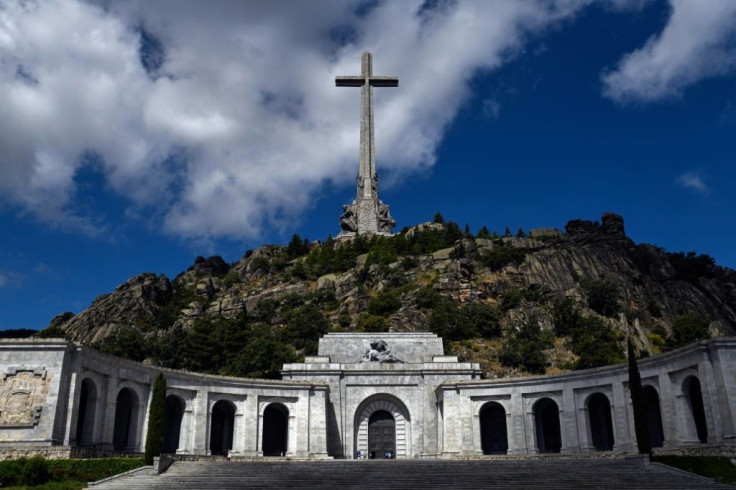

The carefully-choreographed operation which began inside an imposing basilica in the Valley of the Fallen and ended some four hours later at a state cemetery outside of Madrid, was hailed by the government as ending "an insult to Spanish democracy".
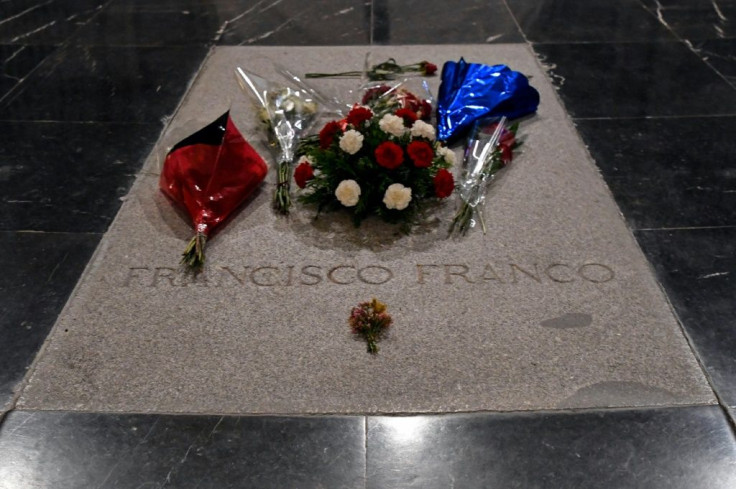
"This decision puts an end to the moral outrage of the glorification of a dictator in a public space," said Prime Minister Pedro Sanchez.
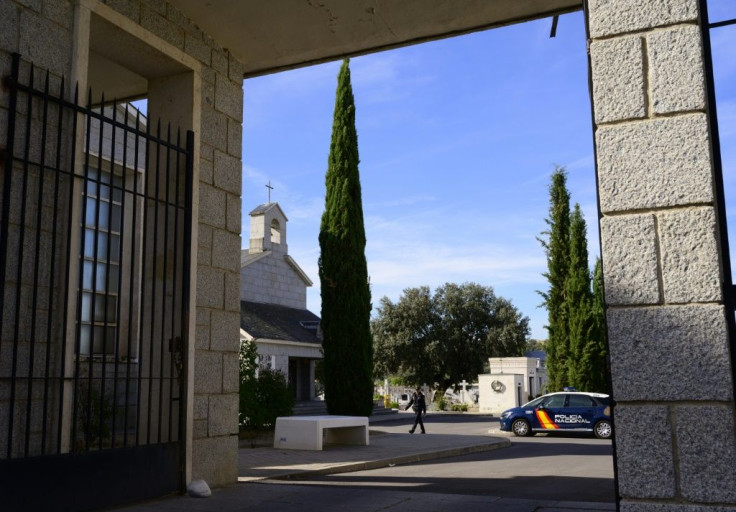
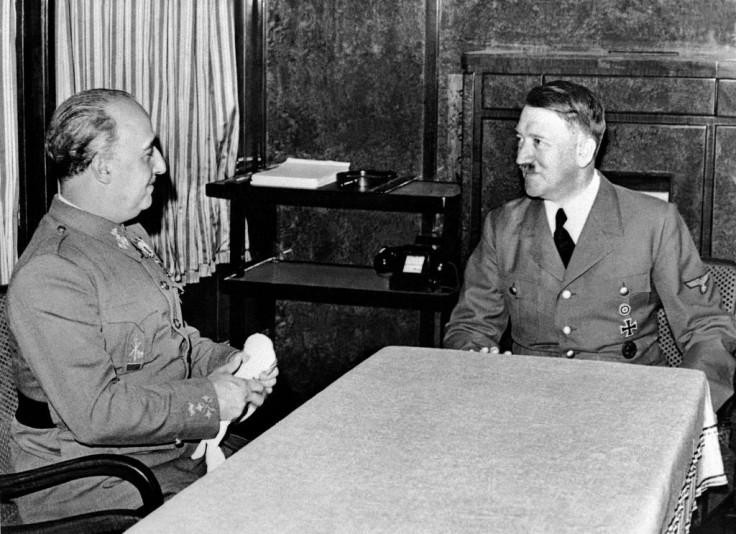
"It takes us one step closer to reconciliation... and gives prestige to our democracy, not only in our own eyes but in the eyes of the world."
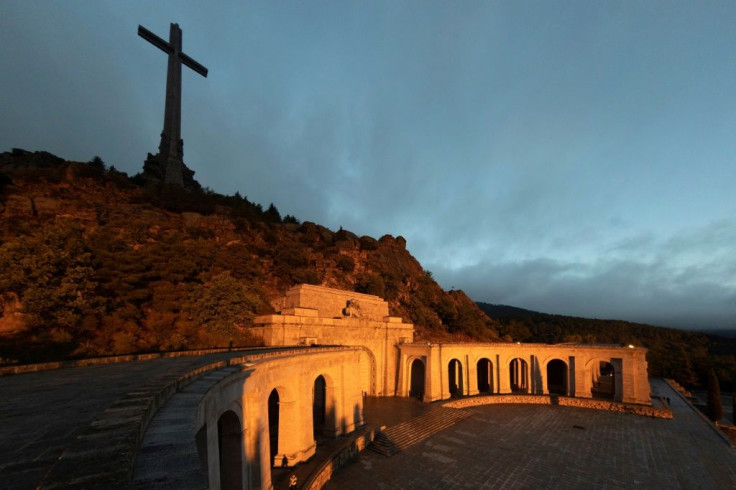
The delicate procedure drew a line under a sombre drama which had threatened to open barely-healed wounds in a nation still divided over Franco's legacy 44 years after his death.
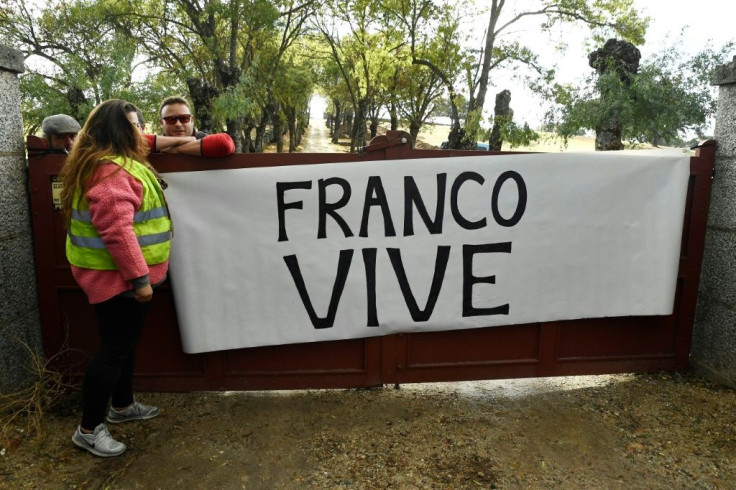
The diminutive dictator ruled Spain with an iron fist following the end of the 1936-39 civil war and when he died in 1975, his body was laid in a tomb inside the vast basilica at Valley of the Fallen, some 50 kilometres (30 miles) northwest of Madrid.
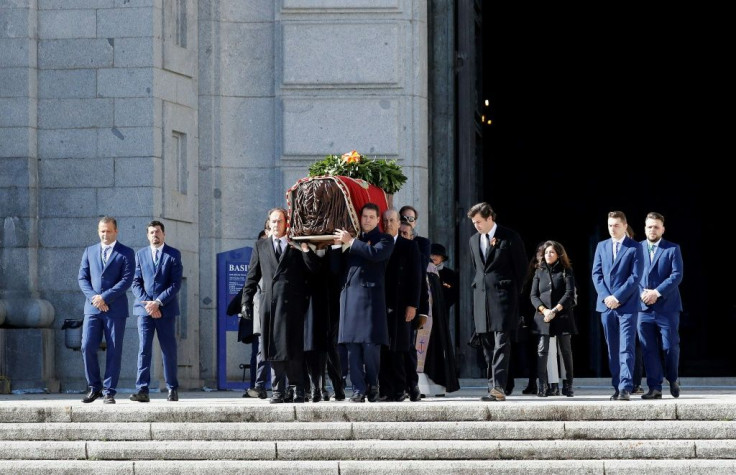
It was there that 22 of his relatives went on Thursday morning to witness the opening of the grave which has drawn both tourists and right-wing sympathisers.
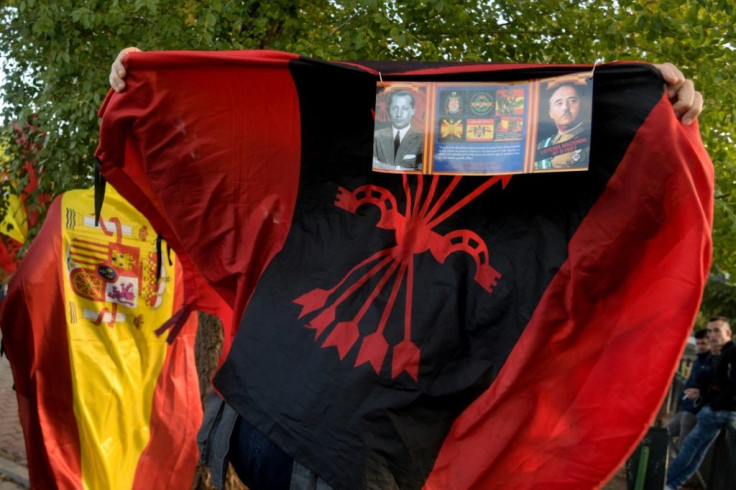
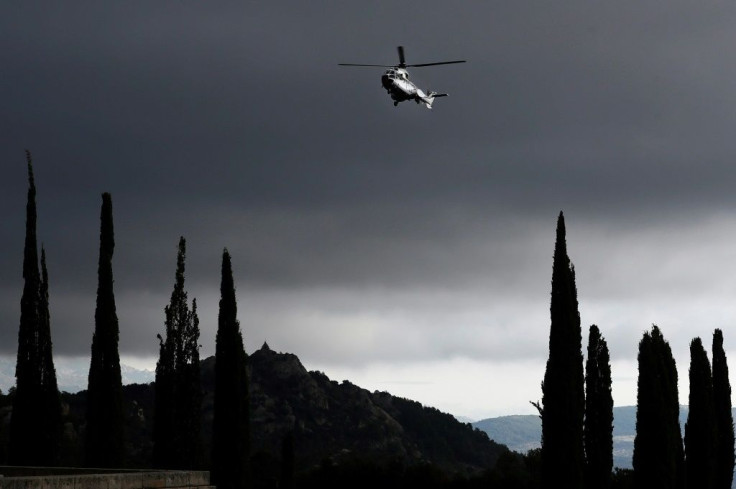
After removing the heavy flagstone, which reportedly weighed 1,500 kilogrammes (1.5 tonnes), the dilapidated casket was secured before being extracted and carried out into the light by eight family members.

It was then transferred to a military helicopter for the brief flight to El Pardo where Franco was reburied alongside his wife in Mingorrubio state cemetery.
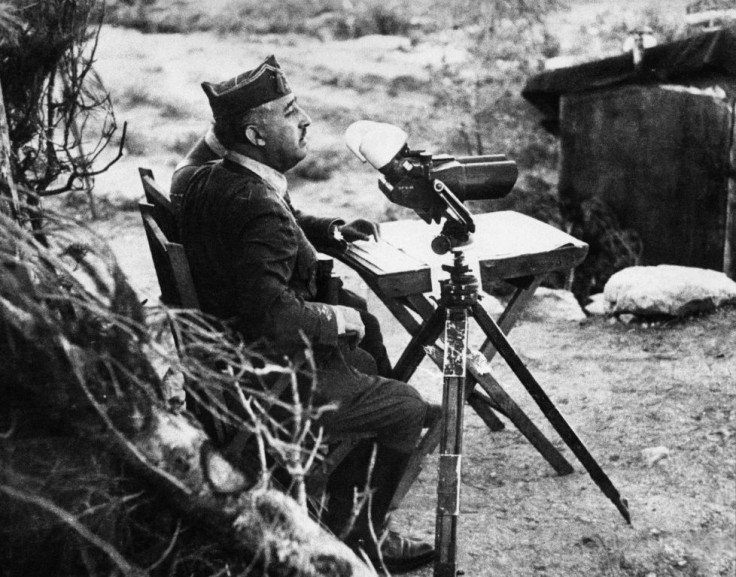
Also buried there is Rafael Trujillo, the dictator who ruled the Dominican Republic until his assassination in 1961.
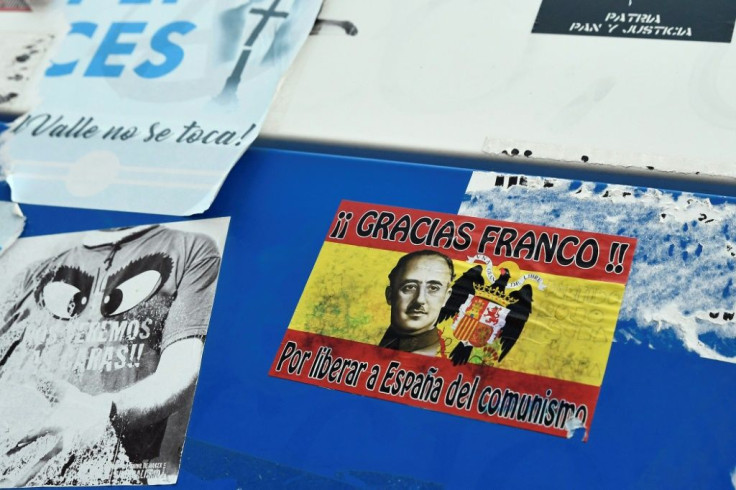
Chasing 'Franco's mummy' votes
Gathered outside the cemetery, around 200 supporters, some draped in older Franco-era Spanish flags, others holding Falange banners, shouted "Long live Franco!"
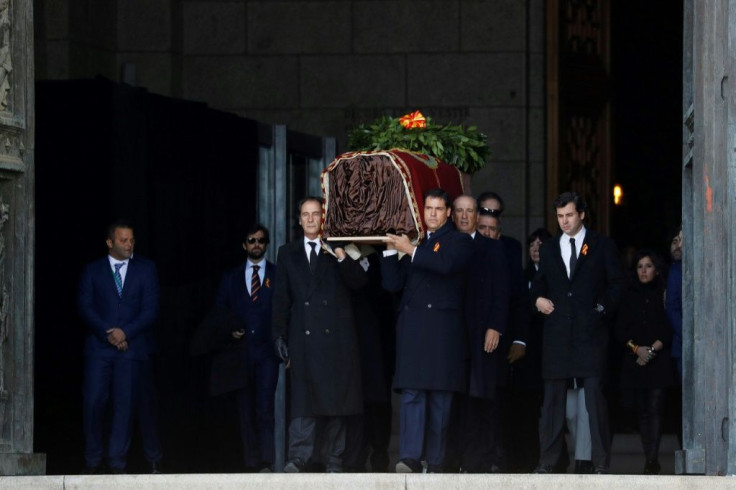
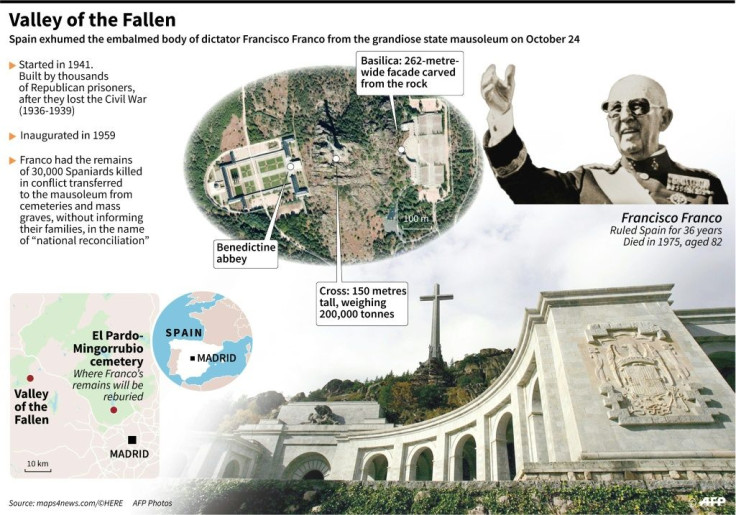
"Franco will never die. For me, today is about loyalty. I had to come to thank him for everything he has done for us," said Miguel Maria Martinez, a pensioner from the Basque Country.

"We are living in difficult times but if he had been with us, the Catalan issue simply wouldn't have existed," said Jose Ramon Gimenez, a 39-year-old delivery man referring to the separatist crisis in northeastern Spain.
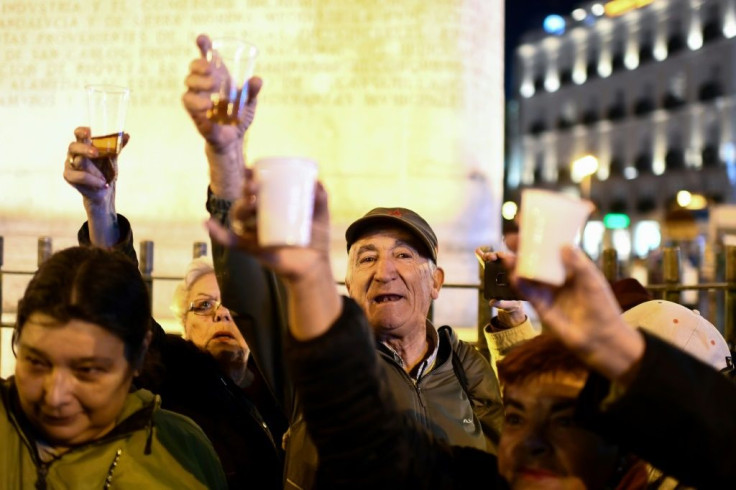
Under Franco, Catalan language and culture was severely repressed.
In Madrid dozens of relatives of victims of the Franco-era came out on to the streets to display their joy at the decision to move Franco from his grand resting place.
"It's a big step, ten years ago that would have been impossible," 64-year-old Lopez Pena told AFP.
"The real transition starts now," added Gallardo Leon, 63, a reference to the period of "democratic transition" which followed the death of the dictator.
Since Sanchez came to power in June 2018, he has made moving Franco's remains a priority, although the plans were delayed by legal challenges raised by the family.
But with the operation taking place before a November 10 election, his rivals have cried foul, with Pablo Iglesias of the radical leftwing Podemos saying Sanchez had unearthed "Franco's mummy" to win votes.
Spaniards are divided over the exhumation, with 43 percent in favour, 32.5 percent against and the rest undecided, according to an El Mundo poll published earlier this month.
'Glorious crusade'
Ordered by Franco in 1940 to celebrate his "glorious (Catholic) crusade" against the "godless" Republicans, the Valley of the Fallen monument was constructed over almost 20 years.
Partly built by the forced labour of political prisoners, the site is one of Europe's largest mass graves, housing the remains of over 30,000 dead from both sides of a civil war that was triggered by Franco's rebellion against an elected Republican government.
Most had fought for Franco but the monument also contains the bones of many Republican opponents who were moved there from across the country without their families being informed.
In 2017, the parliament approved a non-binding motion calling for Franco's remains to be removed from the Valley of the Fallen, but it was ignored by the then conservative government of Mariano Rajoy.
"The Valley of the Fallen, in due time, will be a place of memory, of honour for those who are there," she said.
"There are many things to do but the fundamental goal of removing the dictator from where his victims lay was very important."
© Copyright AFP 2024. All rights reserved.





















